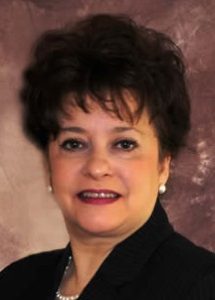

Dr. Linda Frank is an Associate Professor, Infectious Diseases and Microbiology, Department of Infectious Diseases, Graduate School of Public Health with secondary appointments in School of Nursing, Community and Health Systems, the School of Medicine, Center for Translational Science Institute & the Center for Russian & Eastern European Studies. She is currently the Director of the MPH Program at the Graduate School of Public Health, Department of Infectious Diseases and Microbiology (IDM). She has been the Director and Principal Investigator, MidAtlantic AIDS Education & Training Center since 1988 and the Telehealth AETC Appalachian Project form 2011-2015 both funded by Bureau of HIV/AIDS, Health Resources and Services Administration (HRSA), Department of Health and Human Service (DHHS). Prior to 1988, she worked within the Department of Psychiatry at Western Psychiatric Institute in Clinic for 15 years in adult inpatient services, assistant director of child/adolescent inpatient services, and within the psychiatric emergency and diagnostic center.
In 2010 she was elected as a Fellow in the American Academy of Nursing. Since 2000, she has served on the Public Policy Committee, AIDS United, and Washington, DC. She is a Distinguished Alumnus from the University of Pittsburgh, School of Nursing (2004) and, the Pennsylvania State University, School of Nursing (2001). In 2000, she received the HRSA, HIV/AIDS Bureau Outstanding Performance Award; in 2002, the Association of Nurses in AIDS Care Educator Award; and in 2008, AIDS Nursing Leadership Award. In 2010, she was honored with the University of Pittsburgh, Chancellor’s Public Service Award.
World AIDS Day Challenge
The worlds of HIV, substance use, hepatitis, and mental illness are merging as we continue to see individuals with more than one of these challenging public health problems. They come into our clinics and programs with a range of issues and needs that present challenges for us as individual clinicians as well as our institution and the overall system of care.
When I began my career as psychiatric nurse clinical specialist in adult inpatient services and psychiatric emergency services, I was struck by the challenge of stigma in providing coordinated and quality care for patients. As I moved forward in leading a HRSA-funded, AIDS Education & Training Center beginning in 1988, health professionals and health care were struggling with stigma, discrimination and no available treatments for HIV resulting in incredible loss through the death of so many and disenfranchisement of others.
As the science and availability of treatment progressed, we became more hopeful with the beginning of triple combination antiretroviral treatment and new drugs. There was a dramatic decrease in the death rate for AIDS. Continued advances have occurred in the availability of treatment regimens that are increasing longevity. Furthermore, these same antiretroviral agents are now being used to prevent the acquisition of HIV in the uninfected.
However, on World AIDS Day 2016, I would have thought that with all this scientific progress we would be farther along in reversing the course of this epidemic. Stigma, in my view, remains a major barrier to making this change. I would have thought that we could have made advances in reducing stigma. Unfortunately, stigma continues to exist and continues to serve as a barrier to prevention, care and treatment for HIV, substance use, hepatitis, and mental illness. In my view, the fact that all of these “intersecting” public health problems are related to sex, drugs, and death results in a response by the community that is less than adequate due to this plague of stigma in the US and around the world. What is very unfortunate is that stigma prevents individuals from entering the health care system for testing and treatment and obtaining the support that they need for recovery, improved health and quality of life.
But what can be done? There are action steps that can be taken to move forward.
- Change begins with each of us as change agents through self-assessment and role modeling in our own practice for peer and students.
- Change can happen by moving these conversations to the community to engage individuals throughout the lifespan from adolescents to senior citizens with information that treatment does make a difference for HIV, Hepatitis, substance use, and mental illness. These are all treatable conditions.
- Change in the knowledge and practice of current health professionals and students on the absolute critical steps of testing, assessment, treatment and linkage to care for persons with all of these serious public health problems through education.
- Change in our institutions is essential to addressing stigma when and where it occurs as well as improving policies and education in the health care system.
- Change can be improved with the use of persons with HIV, hepatitis, substance use, mental illness in the educational process for health professionals and communities to provide the discussions regarding their struggles and experience with stigma as learning opportunities.
- Change in available treatments and interventions must be paired with simultaneous improvements in professional and community support to reduce stigma and enhance acceptance and improve outcomes for persons who are coping with these diseases.
- Change involves advocacy for those with HIV, hepatitis, substance use, and mental illness so that funding is available to provide the services and resources needed as well as the research to create and enhance innovative treatments and interventions.
Each World AIDS Day we must take stock in how we are progressing in meeting this challenge and work to make advances daily in our work, practice, family and community life. This is our challenge now and for the future.
